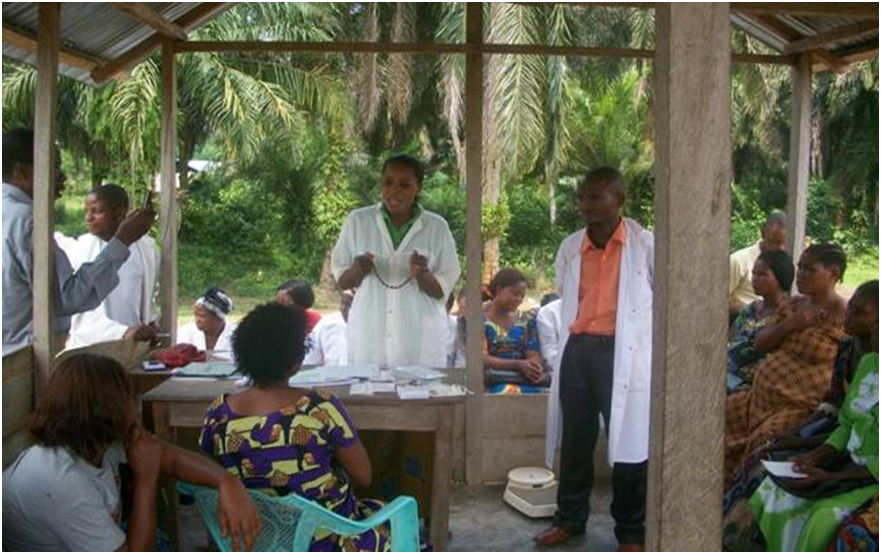Family Planning Choice: Even in Conflict Settings?
[Guest Post contributed by Jen Schulz of International Medical Corps]
Choice is not a term that is often used in describing health options for the populations in Eastern Democratic Republic of the Congo (DRC), particularly in the territory of Walikale in North Kivu, where International Medical Corps operates. Walikale is an active military operation zone, with daily clashes between government forces (supported by UN forces) against the multitude of armed rebel groups in the region. The results of this conflict are thousands of displaced persons who flee their homes for safer areas in larger towns. The clinics that are left behind in the deserted villages are often pillaged, leaving little to no health resources for those in need when communities are able to return.
International Medical Corps is one of the relief organizations operating in the territory, and our mandate is to ensure health services are available and free of charge to displaced persons. We do this through provision of medicine, but also through trainings of health clinic staff so they are aware of how to correctly prescribe and explain treatment they offer to their patients.
This leads me back to the value of choice. On a recent trip to a clinic a few kilometers outside of Walikale, at the Sacre Coeur Health Center, I noticed the range of family planning options available to patients. Among these options were the pill, Depo Provera, and CycleBeads®. I was amazed to find that in spite of the instability in the region these were all part of the package of family planning methods offered in health centers. This is important because many studies have shown that increasing the number of family planning options available to women and couples helps increase method uptake and reduce unintended pregnancies.
In particular, I discovered that wherever family planning is offered, even in the most remote places, there you will also find CycleBeads. I found this striking as CycleBeads, used with the Standard Days Method®, addresses one of the most important concerns of women: side effects and health concerns. While it’s not for everyone, as the pharmacist at the Sacre-Coeur clinic told me, there have been many married women who have requested it as their preferred method of family planning. For those who don’t want to use hormonal methods, this is a good option for them.
Clinics in conflict-affected areas of DRC are still a far cry from an ideal health facility providing services that meet every need of women and couples. But, in a region where maternal mortality rates are critically high, it was reassuring to see that even here, choice is available. Women and their partners can choose which method works best for them.

Family planning training at the Bilobilo Health Center in Walikale territory.
—
Since its inception nearly 30 years ago, International Medical Corps’ mission has been consistent: relieve the suffering of those impacted by war, natural disaster and disease, by delivering vital health care services and sustainable development projects that focus on training. This approach of helping people help themselves is critical to returning devastated populations to self-reliance. For more information visit: www.InternationalMedicalCorps.org. Also see us on Facebook and follow us on Twitter.
 Where We Work
Where We Work  Press Room
Press Room  FACT Project
FACT Project  Passages Project
Passages Project  Learning Collaborative
Learning Collaborative  Search All Resources
Search All Resources  Social Norms
Social Norms  Fertility Awareness Methods
Fertility Awareness Methods